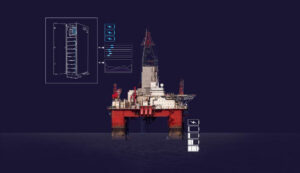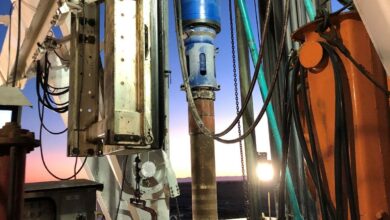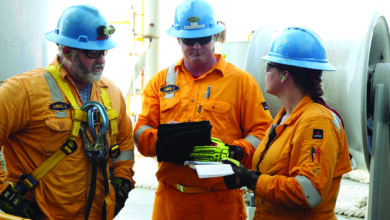Environment, Social and Governance
New Siemens technologies aim to help reduce fuel use, emissions from offshore rigs
Siemens Energy recently announced efforts to deliver technologies aimed at helping offshore rigs reduce emissions.
In one project with Maersk Drilling, Siemens has upgraded two CJ70 jackups in the North Sea with hybrid power plants that use lithium-ion energy storage. The rigs – the Maersk Intrepid and the Maersk Integrator – were retrofitted with the BlueVault batteries, which reduce the runtime of onboard combustion engines.

In the Maersk Intrepid’s first month of operations with the full set of upgrades installed, the rig was able to reduce CO2 emissions by 25% and NOx emissions by 95% compared with its baseline averages.
In another project – with Odfjell Drilling – the contractor is set to retrofit at least two deepwater semisubmersibles with Siemens’ BlueDrive DC-Grid system. The upgrades will be carried out on the Deepsea Atlantic and Deepsea Nordkapp; a later stage of the project may see the system also installed on the Deepsea Stavanger, Deepsea Aberdeen and Deepsea Yantai.
The BlueDrive DC-Grid solution consists of DC/DC converters connected to the existing four drilling drive DC buses from one side and to DC/DC converters connected to energy storage systems. This allows platform operators to conduct peak shaving of drilling loads, so fewer generator sets can run at higher and steadier loads, thus reducing fuel consumption and carbon emissions. The solution is also expected to reduce blackouts.
COSL partners with Kongsberg, NOV on ‘Energy Control’
Collaboration among Kongsberg Maritime, COSL Drilling and NOV, under COSL’s Energy Control project, has produced a solution that the firms believe can generate fuel and emissions savings of more than 25%.
Analysis of historical data on maximum power consumption from the COSLPromoter and COSLInnovator semis allowed NOV to develop a software update for optimal energy usage. Kongsberg used the data to develop targeted and efficient means of controlling onboard energy production and distribution.
It’s expected the integrated solution will allow each rig to carry out full drilling operations using only three of its six diesel generators, on average. By halving the generator capacity, the engines would operate at higher loads, thereby improving fuel efficiency.
Kongsberg’s DP system will maintain the efficiency of the rig’s installed thrusters, enabling the deployment of a dynamic load prediction strategy that anticipates thruster requirements. This elimination of spikes is expected to yield significant fuel savings.
Meanwhile, a Kongsberg K-IMS (information management system) collates the rig’s performance data and uploads it to the cloud to verify ongoing improvements against benchmark data.
Annually, it’s expected that fuel consumption can be reduced by 2,300 tonnes and CO2 emission by 7,300 tonnes.
Shell believes its oil production already peaked in 2019
Shell announced a new strategy designed to accelerate its transformation into a provider of net-zero emissions energy products and services. The company also confirmed its expectation that total carbon emissions for the company peaked in 2018, and oil production peaked in 2019.
To achieve net zero, Shell said it would continue with short-term targets that will drive down carbon emissions as it makes progress towards its 2050 target. This includes a new set of targets to reduce the company’s net carbon intensity: 6-8% by 2023, 20% by 2030, 45% by 2035 and 100% by 2050, using 2016 emissions levels as a baseline. Shell will also seek to have access to an additional 25 million tonnes a year of carbon capture and storage capacity by 2035.
Chevron invests in geothermal development
Chevron has announced an investment in Baseload Capital, a Sweden-based private investment company focused on development and operation of low-temperature geothermal and heat power assets. This is expected to expand Chevron’s geothermal insights, including those around closed-loop geothermal technologies.
This investment follows Chevron’s recent announcement of funding for Eavor, a Canada-based geothermal company.
New API initiative targets environment, safety
On 13 January, API launched its Energy Excellence program, which establishes benchmarks on safety, security and environmental protections. Core elements range from safety culture to equipment design and are aimed at accelerating safety and environmental progress through sharing of best practices and new technologies, as well as annual progress reporting.



